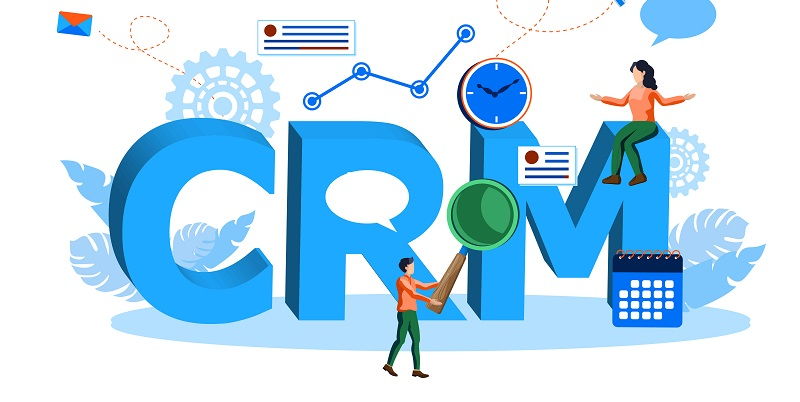In today’s digital age, customer relationship management (CRM) systems have become an essential tool for organizations across various industries. Nonprofits, in particular, can greatly benefit from implementing CRM systems as they provide a streamlined approach to managing donor relationships and engagement strategies. By leveraging the power of CRM, nonprofits can build stronger and long-lasting connections, positively impacting their communities in more ways than one.
Integrated Strategies for Donor Engagement
One of the key advantages of CRM systems for nonprofits is the ability to implement integrated strategies for donor engagement. By synchronizing data between their CRM system and various platforms such as email or social media, nonprofits can engage donors on multiple channels simultaneously. This enables them to reach a wider audience and ensure consistent messaging across different platforms, ultimately fostering stronger connections with their supporters.
With CRM integration, nonprofits can gather valuable insights from various platforms and use that data to create more personalized and relevant content for their audiences. By understanding their donors’ preferences, behaviors, and interests, nonprofits can tailor their communications and campaigns to resonate with their target audience. This personalization not only increases engagement but also enhances the overall donor experience, leading to stronger relationships and increased support.
Boosting Fundraising Efforts
Email marketing and social media integration can significantly boost fundraising efforts for nonprofits. By synchronizing their CRM system with email platforms, nonprofits can create targeted and automated email campaigns that appeal to specific donor segments. Likewise, integrating social media platforms with CRM allows for seamless promotion of fundraising initiatives, reaching a broader audience and increasing engagement opportunities. This integration also facilitates social sharing and peer-to-peer fundraising, amplifying the impact of fundraising campaigns.
Crowdfunding Campaigns and Integration
In recent years, crowdfunding has emerged as a popular fundraising strategy for nonprofits. By leveraging CRM integration, nonprofits can promote crowdfunding campaigns via email and social media simultaneously. This dual promotion not only enhances visibility but also improves donor engagement. Donors can easily learn about the campaign, donate, and share it with their networks. The integration also enables real-time tracking of donations, ensuring transparency and accountability throughout the crowdfunding process.
Streamlining Donation Tracking
Efficient donation tracking is essential for nonprofits to effectively manage their financial resources. CRM integration streamlines this process by automating donation tracking and management. Through the CRM system, nonprofits can accurately record and monitor donations, ensuring that all contributions are properly accounted for. This not only saves time but also reduces the risk of errors or inconsistencies, improving overall financial efficiency.
Centralizing donor and supporter data in a CRM system is crucial for nonprofits. Storing data in a single, secure location allows nonprofits to have a comprehensive view of their supporters, ensuring that no important information is overlooked. It also helps minimize data inconsistencies across different platforms and channels, providing a more accurate and reliable database. This centralized data enables nonprofits to better segment their donors, target their communications, and personalize their outreach efforts.
Real-Time Strategic Adjustments
Beyond storing data, CRM integration empowers nonprofits to gain meaningful insights from the data they collect. By analyzing trends and patterns within their CRM system, nonprofits can identify which strategies are working and make timely adjustments to their approaches. This real-time information enables nonprofits to be agile and responsive, ensuring they are always optimizing their engagement strategies and fundraising efforts.
Creating Lasting Relationships
Ultimately, the implementation of CRM systems and the integration of various platforms contribute to the goal of creating meaningful and lasting relationships with communities. By leveraging CRM, nonprofits can effectively engage donors, tailor communications, and provide personalized experiences. These efforts build trust and loyalty, fostering stronger connections that go beyond a one-time donation. By nurturing these relationships, nonprofits can have a lasting impact on the lives of those they serve.
CRM systems offer tremendous opportunities for nonprofits to build stronger connections with their communities and positively impact society. By implementing integrated strategies, leveraging personalized content, and streamlining donation tracking through CRM integration, nonprofits can maximize their fundraising efforts while also nurturing lasting relationships. The ability to centralize and analyze donor data in real-time enables nonprofits to make informed strategic decisions, adapt to changing circumstances, and continuously improve their engagement strategies. As technology continues to advance, nonprofits must embrace CRM systems to better serve their communities and create a lasting and meaningful impact.

